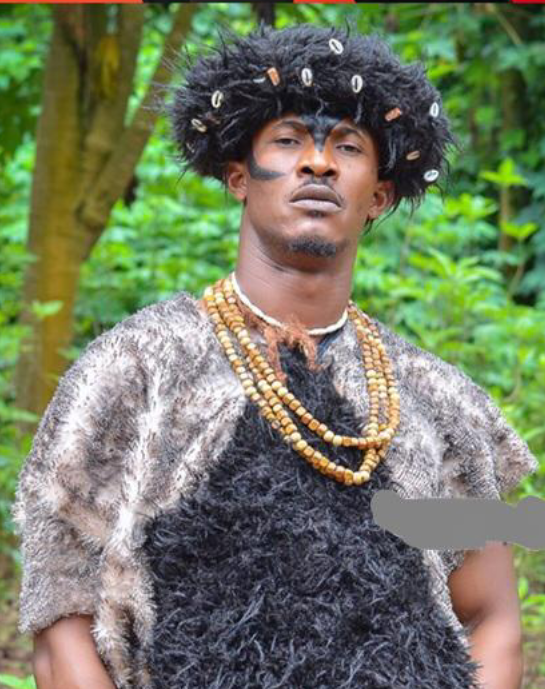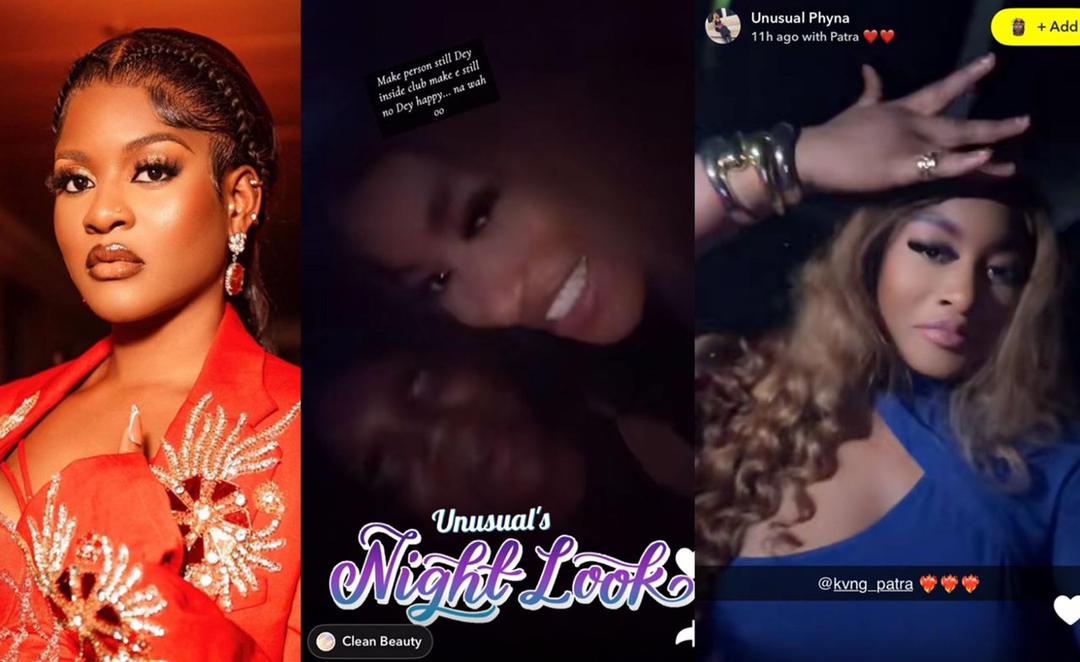
Itchy Role: Gideon Okeke Cries Out After Costume Disaster Leaves Him Covered in Painful Rashes

Popular Nollywood actor Gideon Okeke has once again stirred conversations within the Nigerian film industry, but this time not for his impressive acting skills or a blockbuster release. Instead, the seasoned actor took to social media to share a deeply uncomfortable experience he encountered on set, sparking concerns about hygiene standards in the wardrobe departments of Nollywood productions. According to his post, what should have been a routine day on the set of a Nollywood epic turned into a painful ordeal after he wore a costume that left him covered in rashes.
"Back home with a body full of RASHES!" Gideon exclaimed on his Instagram story just two hours after leaving the set. His message was direct and tinged with frustration. He went on to call out the wardrobe department responsible for the costume he had to wear—an "animal skin tunic" that allegedly had not been washed before being handed to him. “Dear wardrobe department… Do Nollywood a crying favor by washing those animal skin tunics, before giving it to the next unsuspecting talent,” he wrote, making it clear that he believed poor hygiene and negligence were to blame for the skin reaction.
In an era where Nollywood continues to enjoy international acclaim and is striving to match global production standards, Gideon Okeke's lament underscores a critical yet often overlooked aspect of film production—costume hygiene. While the industry is bursting with creative energy and talent, the practical realities faced by actors and crew members behind the scenes often remain hidden from the public eye. This incident has drawn fresh attention to the uncomfortable truth that not all sets are maintained with the same level of professionalism and care.
The actor’s words were laced with sarcasm and a dash of fury as he continued, “The yeye wey dey that wardrobe dey SMELL,” implying that the costume not only looked suspicious but carried an odor strong enough to warrant a second thought before wearing it. He described the experience as a "Diary from a Nollywood EPIC," likely a reference to the film project he was working on. Though he did not name the production or the crew involved, the impact of his statement was immediate and widespread.
Fans flooded the comment section and shared the post widely across platforms. While some expressed sympathy and concern for his health, others took the opportunity to slam Nollywood’s behind-the-scenes practices, particularly in low-budget productions where the rush to cut costs may come at the expense of safety and professionalism. One fan wrote, “This is not the first time we’re hearing such stories. Many actors just keep quiet because they don’t want to be seen as difficult.” Another user commented, “This is why people need to speak up. This is how things improve.”
Gideon Okeke is not new to speaking his mind. Known for his blunt honesty and refusal to sugarcoat issues within the industry, he has previously criticized producers, directors, and the system at large. This latest outcry only adds to his reputation as a voice for better standards in Nollywood. With years of experience under his belt and appearances in top-rated productions such as "Tinsel" and "93 Days," his call for better hygiene should not be taken lightly.
What is even more troubling is the potential health implications of what he described. Rashes could be the result of bacterial infections, allergic reactions, or fungal infections—any of which could be exacerbated by unclean costumes reused without proper sanitization. Costumes made of synthetic materials or animal skin especially need to be thoroughly cleaned, as they are prone to trapping sweat, bacteria, and dust from long-term use. And considering the often grueling shooting conditions on Nigerian sets—where heat, sweat, and long hours are the norm—the failure to maintain basic hygiene becomes even more dangerous.
It also begs the question: how many actors have silently suffered in similar conditions? Are costume departments underfunded, understaffed, or simply unaware of the consequences of neglecting these standards? Or is it a matter of producers overlooking this critical aspect in the race to shoot quickly and cheaply?
Though Gideon Okeke has not confirmed if he required medical treatment, the very fact that he returned home “with a body full of rashes” is alarming. In industries such as Hollywood, every costume undergoes strict cleaning and quality checks before being handed over to a new actor. Nollywood, while not yet possessing the same resources, must begin to emulate such practices if it wishes to continue ascending as a global film powerhouse.
Industry insiders have reacted with mixed feelings. A few costume designers anonymously admitted that there is immense pressure to reuse costumes without sufficient time or budget for cleaning between shoots. “Sometimes we barely have enough time to get from one scene to the next,” one designer shared. “Washing these intricate epic costumes requires time and space. But that’s no excuse. We need change.”
Meanwhile, fans and fellow actors have rallied around Gideon, calling his post a brave move. Some have even suggested that actors begin including hygiene clauses in their contracts to protect themselves from such situations. “We protect our voices, our scripts, and our image—why not our skin too?” one actor tweeted in response.
Gideon’s candid confession is more than just a rant—it’s a call to action. It’s a raw reminder that while Nollywood continues to thrive on talent and passion, there are deep systemic issues still in need of urgent attention. Costume hygiene may seem like a minor concern compared to scripts, lighting, and casting—but for those who wear them, it can mean the difference between a smooth shoot and a medical emergency.
As the story continues to spark debates online, many are watching closely to see if this public outcry leads to any tangible reforms. Will production companies begin enforcing hygiene checks in costume departments? Will actors be empowered to demand better standards without fear of blacklisting? Or will this too pass like many other controversies in Nollywood—loud today, forgotten tomorrow?
For now, Gideon Okeke’s voice rings loud and clear through the industry’s corridors: wash the damn costumes.


